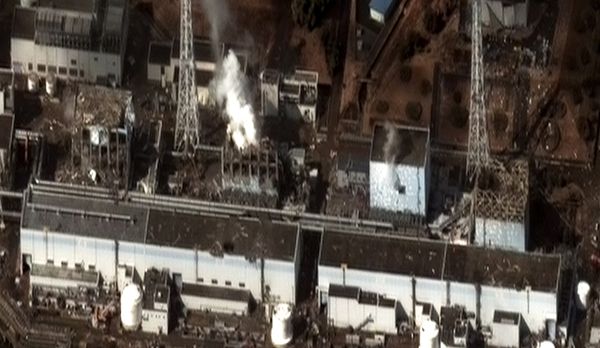
The cheapest one is to dilute and dump the water. The water volume is 110 cubic meters (110 meters is about the length of an American football field). Now TEPCO has 1.3 million tons of contaminated water in 1,000 tanks with more water and claims to be running out of space. “The accident did not end, in the sense that vast quantities of water are being generated,” said Dalnoki-Veress. Workers prevent overheating by pumping 150 tons of water a day, which is stored in tanks on site. The molten fuel debris continues generating heat. When the Fukushima nuclear power plant was hit by an earthquake in 2011, three reactors melted down. What exactly do you do with 1,000 tanks of contaminated water? This spring, Dalnoki-Feress presented to the National Assembly of Korea.Īs of the publication of this article, Japan still plans to release the water. The International Physicians for the Prevention of Nuclear War and the National Association of Marine Laboratories have both come out against the plan. In January 2023, they spoke out in Science magazine, calling for more data and deliberation. In August 2022, the scientists took their private concerns much more public in an op-ed for the Japan Times. The data raised concerns-especially the lack of data on which to base this major transboundary and transgenerational issue. Then when we met with TEPCO, they dumped a massive PowerPoint two hours before the meeting. “It’s like a student handing in a poorly written assignment with no effort,” said Dalnoki-Veress. Two months later, they received 19 messy spreadsheets. The PIF put in a request to know exactly what was inside the 1,000 tanks of water. The project initially seemed straightforward. “I feel humbled to be part of this team,” said Dalnoki-Veress, who led data analysis. The five scientists all bring different expertise-nuclear engineering, the effect of radionuclides on marine organisms, ocean currents, nuclear regulations, ecotoxicology, and more. They had the wisdom to form a global panel of experts to advise them, including Dalnoki-Veress of the James Martin Center for Nonproliferation Studies. In this case, it clarified that the PIF needed help understanding the science in a way that could inform their entreaties to Japan. “A colleague has commented that science can be used to help, clarify, or obfuscate,” said Dalnoki-Veress, who has long chosen to work at the intersection of science, policy, and politics. However, the PowerPoint presentations were inscrutable to all but experts in the field. Japan was sending regular updates on the project to the Pacific Island Forum (PIF), an intergovernmental organization coordinating regional security and environmental issues. In a way, Dalnoki-Veress’s involvement with this all started with a PowerPoint deck. Over the past two years, the physicist has been working on team of scientists tapped to advise the leaders of 18 Pacific Island nations as they engage with Japan and TEPCO, the second most powerful nuclear company in the world. Image: Both units of Japan's Sendai Nuclear Plant were restarted in 2015, and continued to operate throughout two magnitude-7+ earthquakes in 2021.Unsurprisingly, this plan has troubled many, including scientist-in-residence Ferenc Dalnoki-Veress. 'If Japan restarts nuclear, the country’s utilities could re-sell spare liquefied natural gas to Europe,' he said."
Japan backs nuclear time fukushima tv#
'There is a strong tailwind for nuclear power at this moment,' Nobuo Tanaka, a former executive director of the International Energy Agency, said in a Bloomberg TV interview on Monday. Russia’s invasion of Ukraine has pushed up energy prices globally, however, and a recent tremor in Japan took several gas- and coal-fired plants offline, leading to the first-ever electricity supply alert for Tokyo. Japanese public opinion moved decisively against atomic power after the 2011 earthquake and tsunami resulted in the meltdown of three reactors at Fukushima, with most of the country’s operable nuclear reactors remaining shut. The newspaper has been conducting semi-regular polls on the issue for more than a decade. That’s up from 44% support for the restarts in a similar survey in September.

Some 53% of people said nuclear reactors should restart, if safety can be ensured, while 38% said they should remain shut, according to the poll conducted by the Nikkei.

It comes amid surging power prices and warnings of electricity shortages in Tokyo. The survey result marks the first time since the Fukushima disaster in 2011 that an increasing role for nuclear has been favored. "(Bloomberg) - For the first time in more than a decade, a narrow majority of Japanese now support restarting idled nuclear reactors, according to a poll in the country’s top business newspaper.


 0 kommentar(er)
0 kommentar(er)
